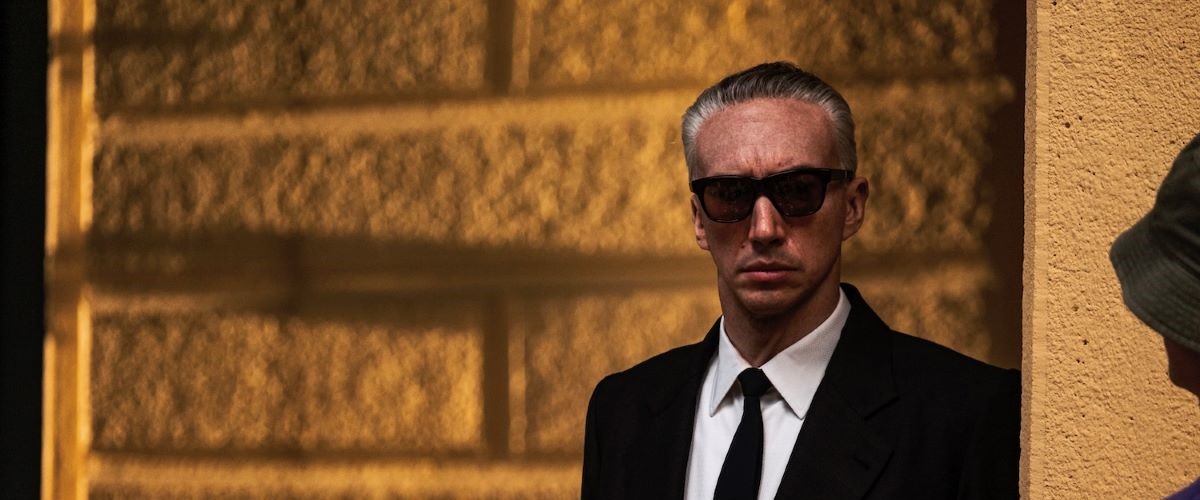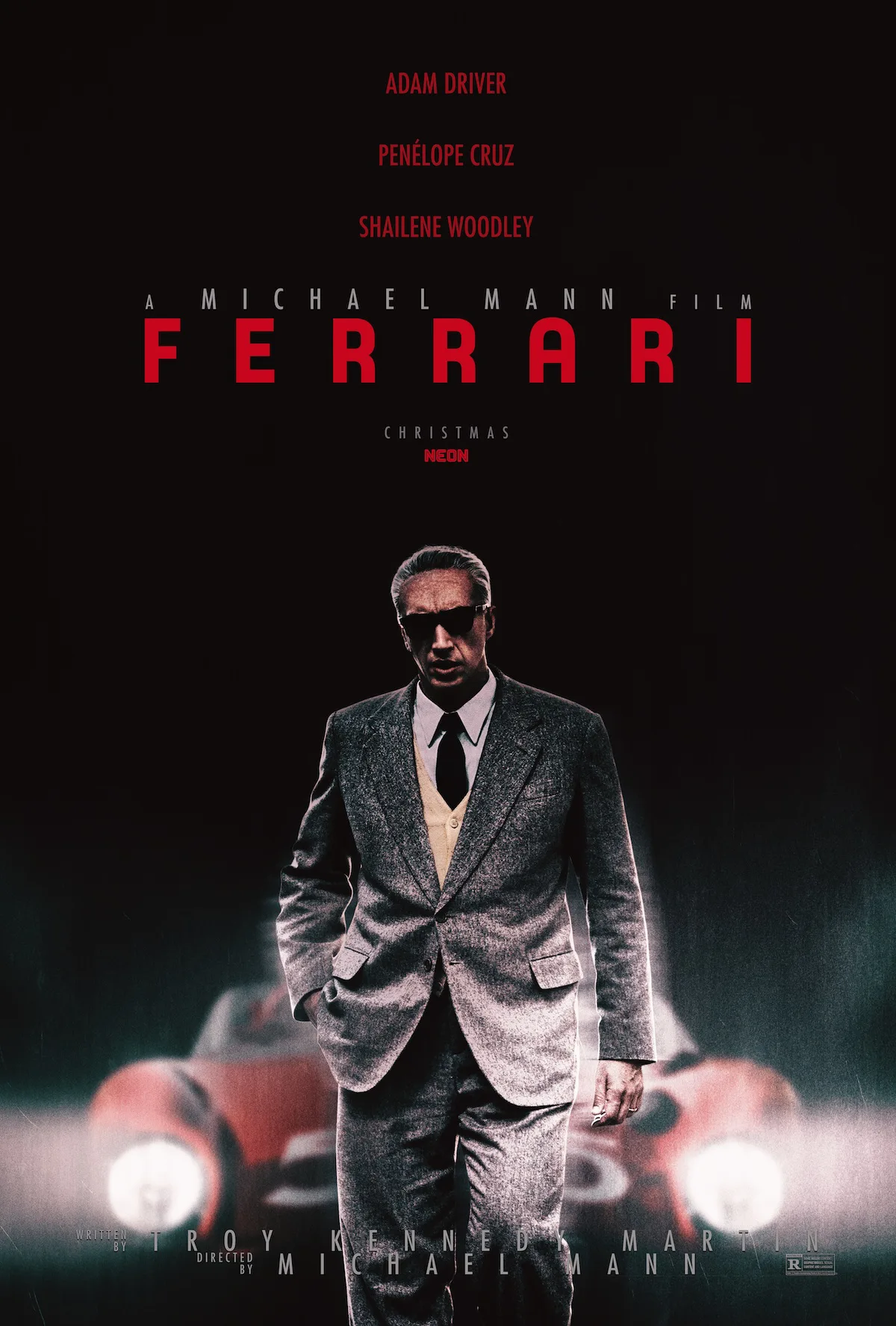Michael Mann has been exploring the flawed personalities of challenging men his entire career, which makes him the perfect choice to unpack the imperfections of Enzo Ferrari, a man who lived to win the race of life. Whether it was the speed record he held onto so tightly that it put others in jeopardy or the vehicle specs that he was constantly updating for an extra half-second advantage on the competition, the image of Ferrari in Mann’s “Ferrari” is that of a human being who is never satisfied, and deeply aware that he’s a split second from disaster. It’s not the constant mental race that Ferrari runs within himself that makes Mann’s film hum, it’s the sense that something is ever-so-slightly off somewhere in his human vehicle, something that will lead to tragedy. Working from a script by Troy Kennedy Martin, Mann has made a drama about a guy who is barely staying on the course of life, juggling his personal and professional issues. Without making it blatant, this is a film that is obviously building to disaster, a story of a man who is the human iteration of one of his high-speed vehicles, just hoping not to crash.
Adam Driver gives an icy, fantastic performance as Ferrari—one that seems likely to be dismissed because of another iffy Italian accent. Get over it. Ignore the reminders of “House of Gucci” and admire the subtle choices Driver makes here to humanize a man who could have been a complete cipher. Martin’s nuanced script gives the Oscar nominee plenty to work with, alternating scenes of what could be called the machine and the man. Ferrari is portrayed as a ruthless genius, but he also seeks counsel from his dead son, and is clearly painted as a hero to his people. At church, he is directly compared to Jesus, a carpenter who would be working with metal today. Is it any wonder Ferrari feels the pressure of perfection?
As it often does in Mann films, pressure leads to emotional distance. Almost everyone in Ferrari’s world is disposable—drivers, lovers, employees, etc. Driver captures how Ferrari tries to hold onto affection for the two women in his life: His wife Laura (Penelope Cruz) and his mistress Lina (Shailene Woodley), with whom he has a child. He recently lost the son he had with Laura, leading to a blanket of grief that hangs over the entire film, especially in Cruz’s stunning performance as a woman who has had enough of her husband’s icy detachment. If Driver is the cold steel of “Ferrari,” Cruz is the fire coursing through this film’s engine. It’s one of the best performances from one of the best actresses of her generation.
“Ferrari” unfolds in 1957 as the title character approaches 60 and struggles to maintain his grip on the industry he revolutionized. He’s a hero in Italy, but it’s tough to wear the crown. The film opens with an effort to break a speed record, something that Ferrari knows could be devastating for a company that’s already battling bankruptcy. The company Ferrari at this point is too focused on sports cars and not the production of vehicles that can be sold to keep it in business. It’s a film about an older man considering his own legacy in the wake of losing an heir, having another heir that he can’t recognize publicly, and the understanding that being a modern-day Jesus comes with certain expectations.
Of course, as with all Mann films, the craft here is simply impeccable. Cinematographer Erik Messerschmidt had a stunning year with his sharp work in “The Killer” and the subtle tension he brings here avoids being flashy in ways that keep the film both grounded and always moving. The editing by master Pietro Scalia (“JFK,” “Black Hawk Down”) really holds a lot of this film together as it slides effortlessly from scenes of domestic conflict to anticipation for the pending race known as the Mille Miglia. Daniel Pemberton did two great scores this year—this one and “Spider-Man: Across the Spider-Verse.” Just as everyone wanted to work with the actual Ferrari, Michael Mann attracts top talent across the board, and they jointly elevate “Ferrari” in ways that lead to one of the most well-made films of the year.
There are maybe a few too many scenes of financial concern and discovery in “Ferrari”—Laura first uncovers some of Enzo’s secrets by essentially intimidating a banker—but it’s a minor complaint for a drama that feels like it’s been under-appreciated in the crowded end-of-year season. So many studios save their potential award winners for the end of the year that it often leads to a pile-up, but history has a way of separating the forgettable from the films that deserve to cross the finish line. This is one of the latter.
In theaters on December 25th.




















